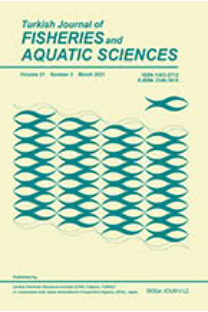The Determination Of Technology & Storage Period of Surimi Production From Anchovy (Engraulis encrasicholus L., 1758)
In this study, the quality changes of the surimi produced from anchovy at - 29°C in five months storage period were investigated. The produced surimi was frozen at - 35°C in air conditioned freezer and stored at - 29°C. The total volatile bases nitrogen (TVB-N), thiobarbituric acid (TBA), moisture and the total aerobic bacteria count in the frozen samples were found in the period of 30 days. On 150th day of storage, it was determined that the total aerobic bacteria count was 4.24logcfu/g, TBA value was 2.015 mg malonaldehyde/kg, TVB-N value was 6.3 mg/100g, moisture value was 74.98 %. In conclusion, it was approved that the surimi could be produced from anchovy and that during 5 months of frozen storage spoilage was low and remained within the limits.
Anahtar Kelimeler:
Surimi, frozen storage, shelf life, anchovy, chemical and microbiological quality, cryoprotectan
The Determination Of Technology & Storage Period of Surimi Production From Anchovy (Engraulis encrasicholus L., 1758)
In this study, the quality changes of the surimi produced from anchovy at - 29°C in five months storage period were investigated. The produced surimi was frozen at - 35°C in air conditioned freezer and stored at - 29°C. The total volatile bases nitrogen (TVB-N), thiobarbituric acid (TBA), moisture and the total aerobic bacteria count in the frozen samples were found in the period of 30 days. On 150th day of storage, it was determined that the total aerobic bacteria count was 4.24logcfu/g, TBA value was 2.015 mg malonaldehyde/kg, TVB-N value was 6.3 mg/100g, moisture value was 74.98 %. In conclusion, it was approved that the surimi could be produced from anchovy and that during 5 months of frozen storage spoilage was low and remained within the limits.
Keywords:
Surimi, frozen storage, shelf life, anchovy, chemical and microbiological quality, cryoprotectan,
- ISSN: 1303-2712
- Başlangıç: 2015
- Yayıncı: Su Ürünleri Merkez Araştırma Enstitüsü - Trabzon
Sayıdaki Diğer Makaleler
Bülent Verep *(1), Davut Turan (1), Vladimãr Kovã¡69; (2)
M.a. Afilal (1), H. Daoudi (1), S. Jdaini (2), A. Asehraou (1), A. Bouali *(2)
Phenotypic Affinities On Fry of Four Mediterranean Grey Mullet Species
George Katselis *(1), George Hotos (1), George Minos (2), Kosmas Vidalis (1)
